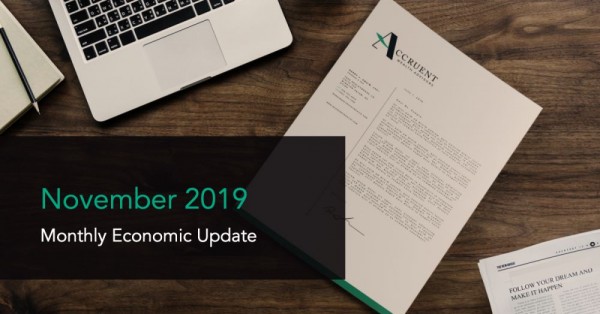THE MONTH IN BRIEF
Investors and traders found much to like in October. The S&P 500 gained 2.04% during the month, topping 3,000 again. The Federal Reserve made its third interest rate cut of the year. Word came that the U.S. and China could be headed toward the first phase of a new, bilateral trade agreement. The United Kingdom failed to meet its extended Brexit deadline, but the European Union granted it more time. While some fundamental U.S. economic indicators were underwhelming, Wall Street got a lift from the latest earnings season.
DOMESTIC ECONOMIC HEALTH
On October 30, the Federal Reserve made its third interest rate cut in three meetings. The Federal Open Market Committee voted 8-2 to cut the federal funds rate by another 0.25%, taking its range to 1.50-1.75%. Earlier in October, the Fed announced that it would soon start buying about $60 billion in Treasuries per month and continue doing so for at least the first half of 2020. The central bank’s latest monetary policy statement noted that exports and business investment “remain weak.”
Certainly, the ongoing Sino-American tariff dispute has affected both exports and business investment. Last month, it looked like there was some progress toward a resolution: following an October 11 meeting at the Oval Office between top-level U.S. and Chinese negotiators, President Trump announced that both sides were close to approving “phase one” of a new U.S.-China trade pact. President Trump and Chinese President Xi Jinping planned to sign off on this initial installment of a trade deal during a November 16-17 economic conference in Chile, but that summit was canceled by the Chilean government in view of that country’s current social unrest. The White House believes an accord can still be signed “within the same time frame.





